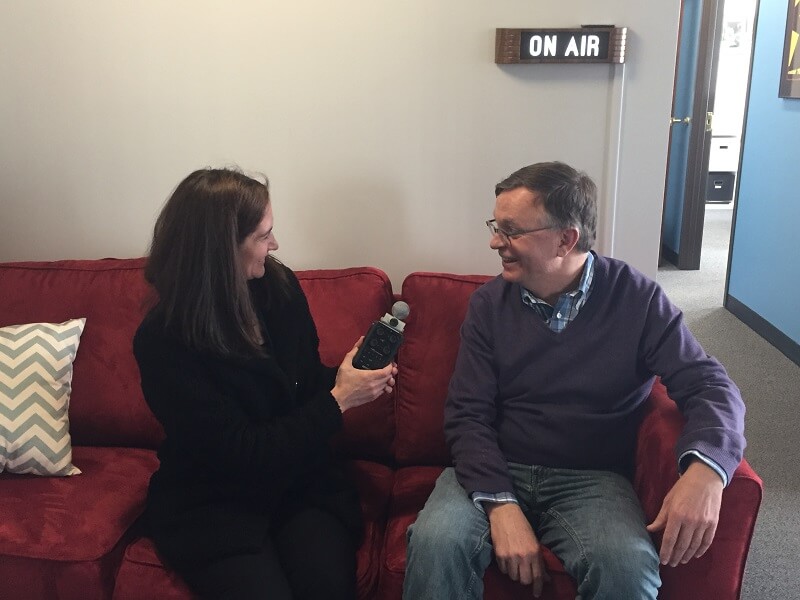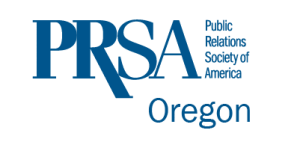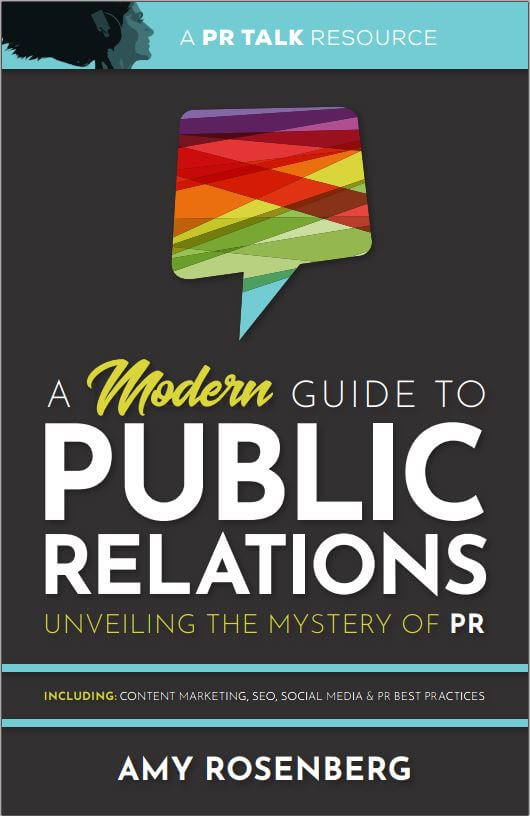Prichard Communications: Using superpowers for good
You wouldn’t intuitively think starting an agency during a recession is a good idea, but that’s just what Mac Prichard did in the spring of 2007.
On the brink of celebrating its 12th anniversary, Prichard Communications now has a team of five and may hire another this year. But Mac’s obligations don’t stop there. He founded and currently runs another company called Mac’s List and continues making connections with his Portland 10, a powerful networking event for social changemakers in Portland.
“I would say, in hindsight, a recession is a good time to start a firm if you’ve got the resources to do it and the flexibility,” Mac told me in our recent podcast interview recorded just before the holidays. “Because it’s a tough time to look for a job and it’s a good time to take risks.”
A young Mac’s 3 things
Even though he didn’t know it at the time, Mac was gearing up to run a mission-driven agency all along. He graduated college the University of Iowa with three goals.
“I wanted to get paid to write. I wanted to work on election campaigns and I wanted to do human rights advocacy and I’ve done all three in my career,” Mac said. “I’ve worked for a human rights group in Washington, D.C. I was a spokesperson for the largest public works project in America at Boston’s Big Dig. I ran communications for a refugee resettlement agency in Massachusetts. I’ve worked for elected officials in Oregon, for both Earl Blumenauer and John Kitzhaber, and served as a spokesperson for four different state agencies.
“But the constant that runs through all these different jobs is they’ve given me a chance to work on issues I care about or make a difference in the community where I live and work.”
Political campaigns are the ultimate startup
He said his work in campaigns was great training for starting a business.
“It starts usually with a conversation around a kitchen table. And the money comes from friends and family. And there’s a product, it’s the candidate,” Mac said. “And on election night you know whether you had a sale or not and then you shut it down.
“After having created all these systems, hired people, presented a product, and sold it, you start all over again. I’ve been through that process about a dozen times. My win-loss record was about 50/50. So, I had my share of failures. But like a good startup culture, like the one in the Bay Area, there’s no stigma with failing. If you ran a good campaign, it’s just seen as part of the learning process.”
Finding your niche
Prichard Communications is a social change communications firm that works locally, as well as nationally. Their clients include the Meyer Memorial Trust, the Ford Family Foundation, and the Robert Wood Johnson Foundation among others. They also work with purpose-driven brands, local governments and public agencies, including the City of Hillsboro, Clackamas County and the Tualatin Hills Park & Recreation District.
The agency is a Certified B Corp., meaning it’s thinking about the triple bottom line. “So, we not only think about the profit, but we also think about the community benefit, and environmental consequences of our work,” Mac said.
That is one of the many things I admire about Mac and his agency. I think with any successful firm, you need to get clear about the clients you want to serve. And the more focused you are, the better you’ll understand their needs and the better you’ll be able to serve them. It seems that the best firms always have a niche.
Beginning with the end in mind
Mac said they begin each client engagement by identifying the desired business outcomes their clients want and then work backward in developing a communications plan or project.
“And usually, they fall into one or all of three buckets,” Mac said. “Usually the organizations that hire us want to attract funding of some kind. Maybe it’s a grant. Maybe it’s increasing membership dues, bringing in some sort of revenue. The second bucket is usually audience growth. Maybe they want to bring more people to their website. They want a bigger audience. And the third is usually a policy change. So maybe they need help working with elected officials. There’s an idea they want to get in front of policymakers out there at the local or national level. So, whatever those results are. That’s where we start with our clients and we work back from those outcomes to build communications programs.”
The work is still about telling stories
If you’ve worked in PR and communications over the last 10 years, you’ve seen how much the work has changed. But some things have remained consistent.
“When I started my career, it was all about media relations and it was about getting past the gatekeepers to help the organizations and the people I work for tell their stories,” Mac said. “We’re still telling stories and helping our clients tell them. But now we’re making our own media or we’re helping our clients do that.”
Mac said a lot of what he and his team do is teach their clients how to do communications themselves. For example, they are helping the Robert Wood Johnson Foundation create a Grantee University, which will be an online learning platform that teaches the organizations receiving grants from the foundation how to tell stories.
“In the end, it’s going to increase the capacity of their grantees. And so that when a grant ends, they’re going to have the skills and the knowledge that they need to successfully tell their stories and get their communications results,” Mac said.
Running an agency
While Mac had a diverse career prior to starting Prichard Communications, it didn’t include the traditional stint in a PR agency. So, he faced a steep learning curve when he started his agency.
His advice? He’s a multiple year alumni of the PRSA’s Counselors Academy, which is a professional interest section within PRSA and, according to its website, “is dedicated to helping members succeed through access to collaborative peer relationships, meaningful professional development and education programs, and information on best practices in public relations counseling.”
“And that’s where I learned the nuts and bolts of how to run an agency,” Mac said. “It was transformational. I’ve gone five years in a row to that conference. It gives me a chance to work with other agency owners and leaders from all over the country and most of them are in very different niches. But the principles of how to run a successful agency are the same whatever your client base or the services you offer.”
Mac’s PR advice
I asked Mac if he had any advice for someone new to the PR industry. He said to connect with people in the companies where you’d want to work or who are doing the work you’d like to do. Go learn how the staff and the founders got where they are, what they are doing day-to-day and learn from those experiences.
“Think about what you’re passionate about. The issues that you care about. And where you want to make a difference,” Mac said. “And go to work for organizations, perhaps in the nonprofit world as a communications professional, that are doing the work you care about.”
About the guest: Mac Prichard
Mac Prichard is the founder and president of Prichard Communications, which was founded in 2007. He has a master’s degree in public administration from the John F. Kennedy School of Government at Harvard University, and a bachelor’s degree in political science from the University of Iowa. His career experience includes working for both Earl Blumenauer and John Kitzhaber and founding a second company called Mac’s List.
Connect and follow Mac on social media:
This episode of PR Talk is brought to you by PRSA Oregon
Throughout Oregon and Southwest Washington, PRSA provides members with networking, mentorship, skill building and professional development opportunities – whether you are a new professional fresh out of college or a skilled expert with 20 years in the industry. Check out PRSAoregon.org for more information on how membership can help you grow and connect.
PR Talk is sponsored by monday
In such a fast-paced, multi-faceted work environment, it can be tough to stay on top of everything. monday is the collaboration tool trusted by businesses of all kinds to help cut down the clutter and streamline productivity. Learn more at monday.com and signup for a free trial. You’ll see in no time why so many teams around the world are choosing monday for their project management needs.
PR Talk listeners can use the coupon code BetterExecute for a 15% discount.












